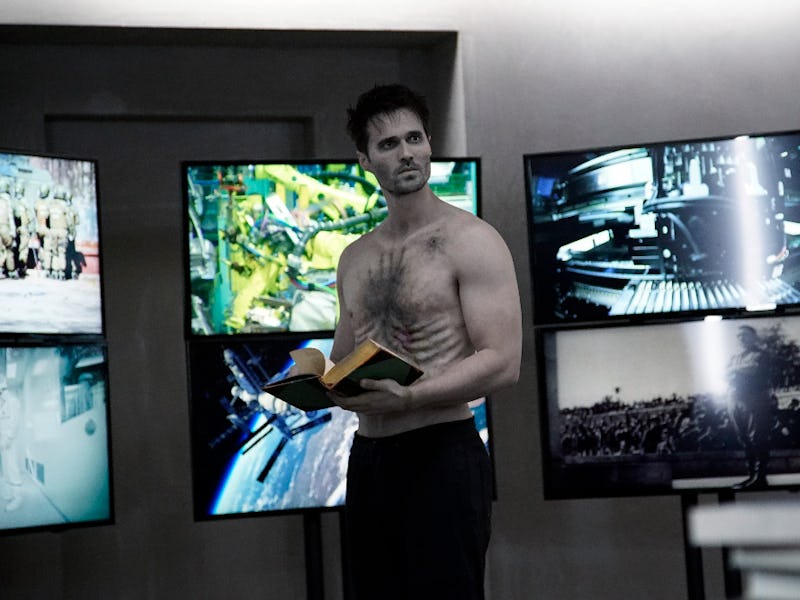Marvel's 'Agents of SHIELD' Really Wishes It Were About Mutants
"The Inside Man" is a fun espionage thriller with xenophobic undertones that makes you wish Marvel were allowed to use some X-Men.

Distant as Agents of S.H.I.E.L.D. may be from the Marvel Cinematic Universe, it is definitely tapping into themes that the upcoming Captain America: Civil War movie can’t explore from its origin text. This week’s episode, “The Inside Man,” is a fun espionage thriller with mutant — excuse me, Inhuman —discrimination as the central conflict. It’s no secret Marvel wants Inhumans to replace the better- known X-Men, but we won’t care if S.H.I.E.L.D. continues to be this good.
Now forced to work with General Talbot, whom the President appointed head of the A.T.C.U. last week in the midseason return, Coulson and Talbot attend an international summit with remarkably tame stereotypes of the world’s superpowers (as in countries, not superheroes). The topic at hand: the new “Inhumans,” individuals with alien DNA whose powers materialized after the world-wide Terrigenesis last season.
For the unfamiliar, the 2006 Civil War comic book dealt with individual privacy in the face of national security. For the first time in Marvel history, all superheroes were viewed through the same prejudice as Marvel’s mutants. Half queer politics and civil rights, half gun control, superhero registration is a timely (and timeless) narrative tool that makes cool superhero fights smarter and more enlightened.
And now there’s a movie about it. But the boring legal stuff between Marvel/Disney and 20th Century Fox who own the rights to X-Men forced Marvel to change Civil Warand dig up a suitable replacement for the mutants: Inhumans, human beings with alien DNA whose powers awaken after Terrigenesis.
The Inhuman awakening in Season 3 is the most superhero-y the series has ever been, a far cry from the Agents of S.H.I.E.L.D. which felt like a Jason Bourne series arbitrarily set in a superhero world. And that’s still the framework, in which characters operate like militarized Power Rangers and vigilantes like Arrow. But that said, Coulson’s team — and the show, by extension — is growing into actual superheroes. Daisy has mastered her superpowers and has taken hold as the true hero of S.H.I.E.L.D. while training Lincoln. He’s in tune with his abilities but out of tune as an agent. Hive, who’s using Grant Ward’s body, will be the show’s biggest (and most exciting) monster yet.
Being more “superhero”-esque doesn’t automatically make S.H.I.E.L.D. good, but it is far more focused than it’s early days. Competing against traditional superheroes like The Flash, Agents of S.H.I.E.L.D. stands out as unique and refreshing, terms I couldn’t ascribe to the show a year or two ago.
It’s just a shame Marvel can’t use mutants for its analogies. Inhumans work just fine, but mutants, man. Their history is all about discrimination, and those stories were published through some of the most tumultuous times in civil rights history, which was totally Stan Lee’s intentions. But given the current political climate, maybe talking about “aliens” is a bit more seasonal.